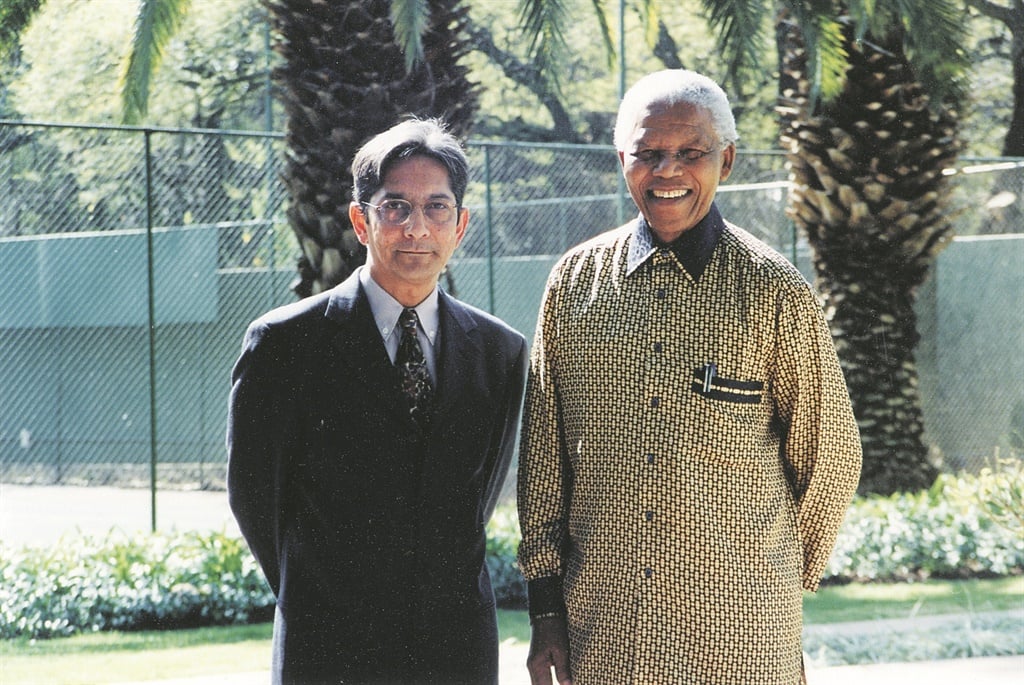
Towards the end of 2006, South Africa had undergone immense changes, transforming the apartheid autocracy into a truly democratic, multiracial democracy.
But the country still faced immense challenges. Despite a growing economy, poverty and inequality seemed to have gotten worse, though, in fact, it was a reality inherited from the apartheid past that the new, post-apartheid state was struggling to deal with. Of great concern was the impact this had on the younger generation, part of what academics called Africa’s “youth bulge”.
In addition to the growing socioeconomic crisis, South Africa was hit by the HIV/Aids pandemic, a deadly global disease that required a comprehensive response – medical and educational – that the then government did not respond to adequately.
Established in 1999, the Nelson Mandela Foundation (NMF) focused on assisting poor communities by providing support, particularly in education. Following a review of its work and in the face of the broader crisis in the country, Mandela, along with the NMF’s board members, believed that charitable work, however noble, would not by itself help to address those challenges. After intense consideration, the NMF decided to try to contribute more effectively, from a deeper perspective, by attempting to promote cooperation between different sectors in government and civil society.
The foundation would also try to encourage communities to take more responsibility. This would mean quite radically refocusing the NMF’s core programme.
While working for UNAids in Geneva, I received a call from Nelson Mandela and the NMF’s board chairperson, Professor Jakes Gerwel, to return home and join the foundation, which I did in January 2007. I would be there for seven challenging but exciting years. Working closely with the board, and taking critical advice from Mandela himself, it was my task to lead the refocusing of the foundation’s core goals, and to implement the necessary organisational restructuring. The guideline was not to use Mandela’s legacy to simply glorify an individual, but to promote social justice in South Africa and the world.
This would be driven by two key strategies:
- Dialogue and advocacy. These would be used to address the critical socioeconomic problems the world faced, and bring together, in a safe and neutral manner, different stakeholders in government, civil society and business. The goal was to get stakeholders, whether they agreed or disagreed with each other, to have constructive conversations about how best to overcome major problems. The dialogues grew over time, addressing even the most complex issues, and continue today.
Out of the dialogue programme grew Mandela Day.
Again, at Mandela’s request, this was not meant to focus on celebrating him as an individual, but was a way to inspire individuals to take responsibility and help to make this a better world for all, especially the poor and underprivileged.
- Centre of Memory. Rather than use Mandela’s historical records to glorify him as an individual, they would be used as a way to inspire people around the world as an example of how even the most complex and embedded problems can be overcome. The centre was formally launched in 2013.
These strategies became highly successful – and continue to be – as a way to help bring about changes in our complex world.
During my years at the NMF, the biggest challenge we faced was to convince key stakeholders, especially in governments around the world, that this approach was not an abuse of Mandela’s legacy, but that we were using it as a way to help bring about positive change, and that it had no intention to be politically subversive. The fact that many of these changes were at Mandela’s personal request and inspiration seemed to calm those detractors.
Ahmed Dangor was the chief executive officer of the NMF from 2007 to 2013




 Publications
Publications
 Partners
Partners









